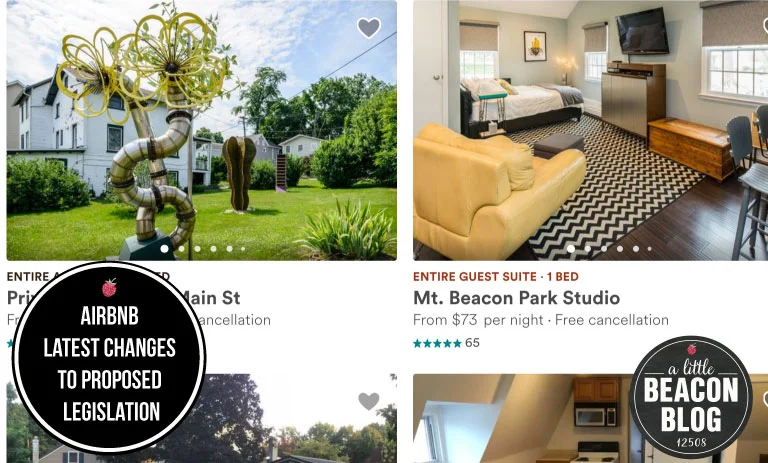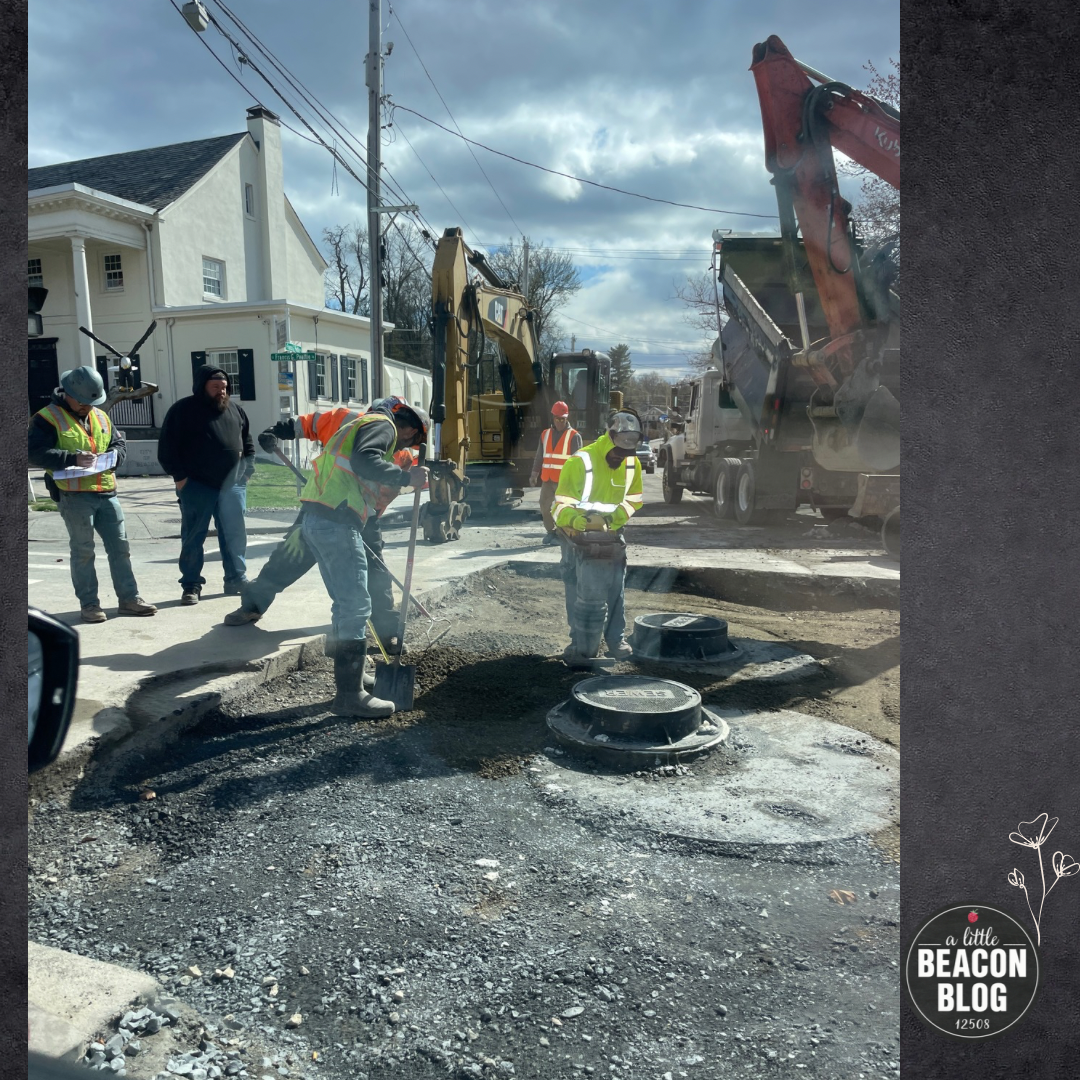Latest Changes to Draft Legislation for Airbnb in Beacon, NY (Short-Term Rental)
/The Beacon City Council has made changes to the proposed legislation it is currently considering, to regulate short-term rentals by homeowners, commonly referred to as Airbnb-ing one's home. These changes are being discussed today in a City Council workshop meeting. The topic is #4 on the workshop agenda, which includes a dozen other areas for discussion. You can see all of the changes here at the city's website in red underlines and strike-throughs in the link called "Short Term Rentals LL."
The city has received a lot of public feedback about short-term rentals and Airbnb spaces in Beacon. The topic was first discussed in 2014, and with the city's skyrocketing popularity, addressing lodging space has only become more urgent. Since the City Council began to revisit potential short-term rental legislation, the following major changes have appeared in the public draft of the proposed city law. It would be the first of its kind for Beacon, and will be discussed at tonight's City Council workshop.
- Language was removed from the overall introduction of the law that implied that short-term rentals in and of themselves cause bad behavior and disruption to neighborhoods at large.
- "Non-owner" specification added to the determination that short-term rentals are inconsistent with the use of a residence for residential dwelling purposes.
- Campers, garages, sheds, and other structures not approved for residential use - temporary or permanent - remain un-rentable in short-term residential situations.
Editor's note: Just as an FYI, businesses that rent campers on their property, such as Kate's Lazy Meadow in the Catskills do exist, and require their own sets of business and insurance filings. - "Owner" has been more refined to exclude "entity corporation, limited-liability company, partnership," in addition to other forms of entities like a trust, or guardian of an estate.
- Spaces available as rent-able have been more defined.
- Requirements of the owner to show where the house has been advertised have been reduced.
- Owner-occupancy remains the required status, which means that people would not be able to rent out a second or third home they owned on a short-term basis. The home would need to be the primary residence of the owner.
- Weddings, concerts and other commercial uses of a property would remain unlawful for short-term rental.
- The 100 days per year maximum amount of rental days has been removed. Nearly everyone who spoke at the public hearing for short-term rentals was opposed to that maximum. At that meeting, Council Member John Rembert voiced a request to "revisit the 100-day" maximum.
- Permits would be required once the law is signed, and those who already rent out would have "45 days to file an application to obtain a short-term rental permit and 90 days to receive such short- term rental permit before any violations are issued" by the Building Department, unless the Building Department gets delayed.
The entire proposed law, called "Short Term Rentals LL," is here for you to read." The document at the link includes more changes not highlighted here.
RELATED ARTICLES








































